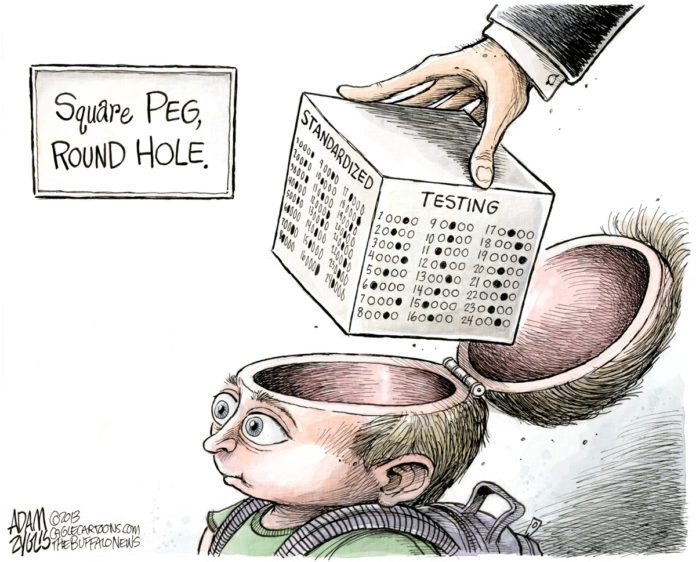BY SHARON MARTIN
 After years in the classroom, I’ve learned a few things. I know that most students will learn to read regardless of what method is used to teach them. For some, however, only phonics will do. For still others, phonics is a foreign language, a waste of time.
After years in the classroom, I’ve learned a few things. I know that most students will learn to read regardless of what method is used to teach them. For some, however, only phonics will do. For still others, phonics is a foreign language, a waste of time.
Students who struggle to decode words may have perception issues; what they see on the page may not be what you see. These kids need one-on-one time with a reading specialist.
Regardless of what our state superintendent and the reformers say, not every child will be a fluent reader by the end of third grade. That doesn’t mean that a struggling third-grade reader might not be superb in math, science, or art.
To hold a child back based on a reading score is a mistake. It’s wrong to take away a student’s safety net, to pull kids away from their peers, to point them out as failures.
We don’t need to hold kids back; we need to hold them up. Give them specialized training. Give them our time.
As important as reading is, it isn’t everything. In addition to the core subjects, the following should be part of any reform curriculum:
How to get along with others
Despite what the rugged individualists say, we are stronger if we are part of a thriving community.
Critical thinking
Children who learn to think for themselves won’t be bamboozled by political con artists and snake oil salesmen.
Economics
Imagine if voters and our elected officials really understood that wars bankrupt us, but education and health care investments do not.
Life skills
It’s important to know where food comes from and to understand the impact of nutrition, exercise, and cleanliness on a person’s health.
Music and art
If school ignores creative needs, it isn’t education but indoctrination. The point of education is to help people build better lives for themselves and for their families. People need music and art.
Physical education
Sports and movement are essential to our wellbeing. A championship ball team is not.
Most so-called reform is self-serving; it feeds reformers’ bottom lines. Real reform calls on the expertise of teachers and administrators. It understands that what is right for one child may not work for another. It doesn’t rely on standardized test scores and it doesn’t assume standardized children.
Maybe it is time teachers took reform into their own hands.
– Sharon Martin lives in Oilton, OK and is a regular contributor to The Oklahoma Observer








Amen to that! I stopped teaching after 20 years because of the mentality that special students would be neglected. Not all can or will learn the same way.